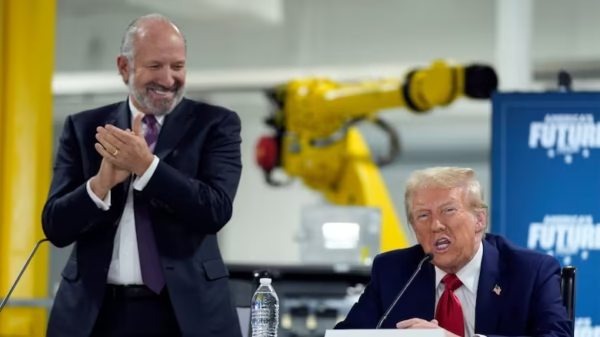Background and Context of the Incident
In a recent incident at Wells Fargo, several employees were terminated for using mouse jigglers to fake keyboard activity. This behavior emerged in the context of the remote work environment necessitated by the COVID-19 pandemic. With a significant portion of the workforce transitioning to work-from-home setups, the pressure to demonstrate continuous productivity increased. Employees were often required to show consistent engagement with their tasks, leading some to resort to technological methods to simulate activity.
Mouse jigglers, small devices or software applications that move the cursor on a screen, became a tool for employees attempting to circumvent monitoring systems. These devices work by sending signals to the computer that mimic the movement of a physical mouse, thereby preventing the screen from going idle and suggesting that the user is actively working. In addition to mouse jigglers, some employees used other software tools designed to create the illusion of keyboard activity, further complicating the monitoring of actual productivity.
Wells Fargo’s internal monitoring systems eventually detected irregularities consistent with the use of such devices. The discovery led to a thorough investigation, revealing the extent of the fraudulent activity. The investigation identified specific employees who were utilizing these methods to fake their presence and activity. As a result, Wells Fargo decided to terminate the employment of those involved, citing a breach of trust and integrity essential for maintaining a productive and honest work environment.
This incident highlights the challenges faced by companies in monitoring remote work and ensuring that productivity metrics are genuine. The use of mouse jigglers and similar tools represents a broader issue within remote work dynamics, where the line between actual performance and the appearance of activity can be blurred. Wells Fargo’s response underscores the importance of upholding ethical standards and the need for robust systems to detect and address fraudulent behavior in the workplace.
Implications and Reactions
The termination of employees at Wells Fargo for using mouse jigglers to fake keyboard activity has sparked significant discussion within the company and beyond. The broader implications of this action touch upon various facets, including ethical concerns, trust issues, and potential legal ramifications.
From an ethical standpoint, the monitoring of employee activity raises important questions. While companies have the right to ensure productivity, the extent of surveillance can lead to an erosion of trust between employers and remote workers. The use of mouse jigglers by employees, though dishonest, reflects a deeper issue of perceived micromanagement and pressure to appear constantly active.
Management’s reaction has been mixed. On one hand, enforcing strict policies to maintain productivity is seen as necessary, especially in a remote work environment. On the other hand, such measures can negatively impact company culture and morale. Employees may feel distrusted and demotivated, leading to a potential decline in job satisfaction and engagement. This incident could prompt a reevaluation of how companies monitor remote work without compromising employee well-being.
Industry experts have weighed in on the potential legal ramifications. The firings could lead to wrongful termination lawsuits if employees argue that the monitoring practices were invasive or not clearly communicated. Moreover, there is the question of data privacy and whether the methods used to track activity comply with regulations.
The incident at Wells Fargo could lead to changes in remote work policies and monitoring practices across the corporate world. Companies might adopt more transparent and balanced approaches to monitoring, focusing on outcomes rather than constant activity. This could include setting clear expectations and providing employees with the autonomy to manage their work effectively.
Other companies are likely observing this situation closely, considering how they can avoid similar issues. The key takeaway is the importance of building a culture of trust and transparency, where productivity is measured by results rather than the illusion of constant activity.

































